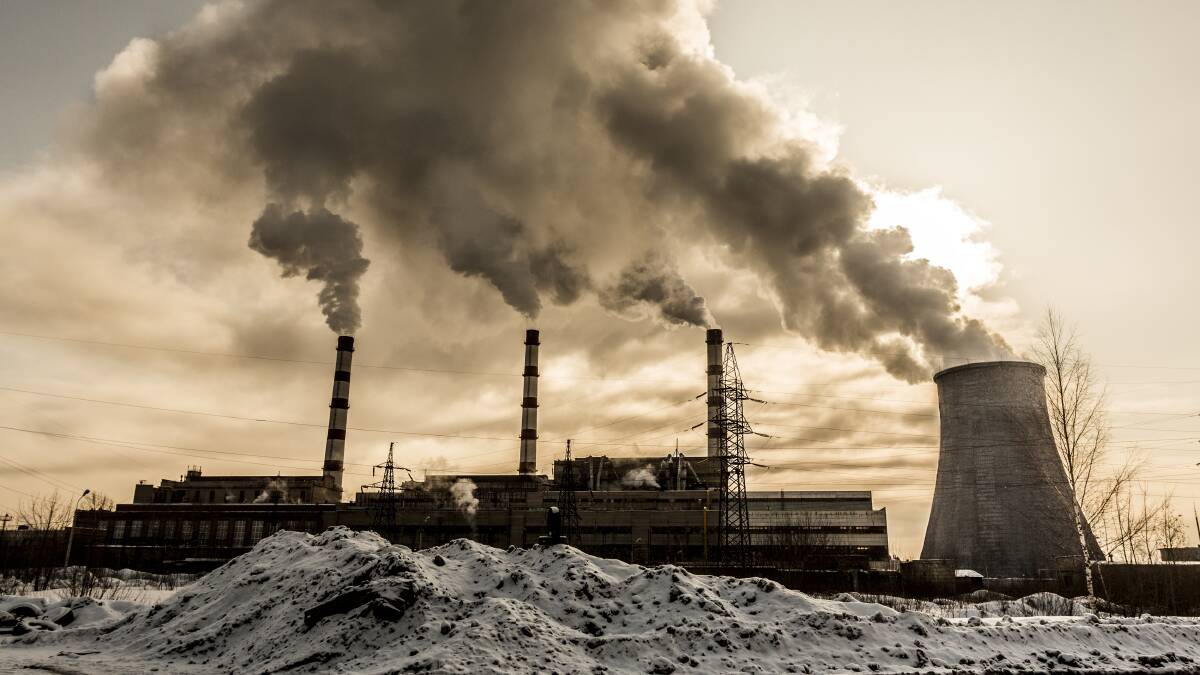In a speech in London last month, Iceland's Prime Minister Katrin Jakobsdottir added her country to those putting wellbeing before GDP in their budgets, calling for "an alternative future based on wellbeing and inclusive growth". Growth was considered not only essential but also positive, she said, "but we need to think about how it is achieved and what does it cost?".
Subscribe now for unlimited access.
or signup to continue reading

Iceland has joined New Zealand and Scotland in a Wellbeing Economy Alliance to push a wellbeing agenda. In May this year, New Zealand Prime Minister Jacinda Ardern announced what she said was the world's first "wellbeing budget", prioritising action on mental health, domestic violence and child poverty.
There are other signs of shifting political priorities. Commenting on the manifestos of the parties contesting the UK election, Guardian writer George Monbiot noted that an extraordinary feature of the election was that growth, for some parties, has almost become a dirty word: "it is mentioned only twice in the Labour manifesto, both times with qualifications." The Liberal Democrats had made a crucial breakthrough, he said, "arguing that GDP should no longer be a government's central objective. Instead, [governments] should focus on wellbeing." This was a policy the Greens had been urging for years.
Are these, at long last, signs that governments are getting the message that growth in GDP is a poor measure of national progress and people's welfare? If so, Australia can claim some credit. In 1997-98, CSIRO Australia, in collaboration with the Australian Bureau of Statistics and the university-based National Citizenship Project, organised a conference in Canberra and published a book called Measuring progress: Is life getting better?.
The exercise was one of the most wide-ranging explorations of progress undertaken at the time. It spanned social, economic and environmental perspectives, and ranged from the personal scale to the global. It brought together leading researchers to discuss indicators of national performance, what they tell us about the quality and sustainability of life in Australia, and how they can be improved. It included responses by senior bureaucrats, academics and community representatives.

The ABS took the book and the idea to the OECD in Paris, which launched its own project: "Measuring the progress of societies". This interest spread to member countries, perhaps most influentially in France's Presidential Commission on the Measurement of Economic Performance and Social Progress, which reported in 2009 and prompted further work by the OECD (the OECD is also in the Wellbeing Economy Alliance). The ABS published its own reports, titled Measures of Australia's progress, from 2002, but the project was discontinued in 2014 because of funding cuts.
There were other elements of this development. For example, in the US, the organisation Redefining Progress created the Genuine Progress Indicator, which showed a widely divergent trend from GDP (its founder, Ted Halstead, was a guest speaker at the Canberra conference). Another element has been the growing interest in using measures of subjective wellbeing - happiness and life satisfaction - to measure and compare national performance.
I convened the CSIRO conference and edited and contributed to the book. I am also a co-author, with Professor Bob Cummins at Deakin University, of a national index of subjective wellbeing, the first of its kind in the world.
The work on progress indicators is all well and good, especially in challenging the political priority given to GDP. However, over the years I have grown more sceptical of the possibility of measuring, accurately and fully, the state of nations and the wellbeing of their people. The "holy grail" of a single index which accurately measures and compares how well nations are faring has proved elusive. The quest may be scientific folly.
Public perceptions of the future of the world or humanity (as distinct from their personal future) have been another dimension of my research. I am not aware of any progress indicators that reflect the depth of people's concern (which existed well before climate change gave it a tangible focus). Our politics and media fail utterly to come to grips with the scale and significance of this concern.
READ MORE:
The current wave of global political unrest and protest is commonly attributed to growing inequality, corruption, austerity, thwarted expectations and climate change. But the reasons also go deeper, challenging the entire narrative of modernisation. British historian Kenneth Clark observed in his acclaimed BBC television series Civilisation that, however complex and solid civilisation seemed, it was really quite fragile. In the concluding episode, after reviewing thousands of years of the rise and fall of civilisations, he warns that "it's lack of confidence, more than anything else, that kills a civilisation. We can destroy ourselves by cynicism and disillusion just as effectively as by bombs".
Dutch futurist Frederik Polak stresses, in his classic book The Image of the Future, the importance of the creation of positive images. He studied how images of the future have changed over 3000 years of Western history, and notes: "As long as a society's image of the future is positive and flourishing, the flower of culture is in full blossom. Once the image of the future begins to decay and lose its vitality, however, the culture cannot long survive."
These warnings seem frighteningly relevant to our times. The decay and disillusion may be commonly expressed in the language of today's mass media, politics and people's daily lives, but they will not be dispelled in that language. The roots of the decay are deeply existential, both in the physical sense of our survival and in the philosophical sense of the meaning and purpose of our lives.
My opening paragraphs are an upbeat assessment of a shift in the political winds. I fear the reality is different. The Conservatives' landslide victory in the UK, like the outcome of this year's Australian federal election and other global developments, seems to be a repudiation of the changes we need to make in rethinking human progress. We can only hope that the worse things get, the more likely we are to wake up.
- Richard Eckersley is an independent researcher and writer on progress, wellbeing and the future. His work is available at richardeckersley.com.au.

